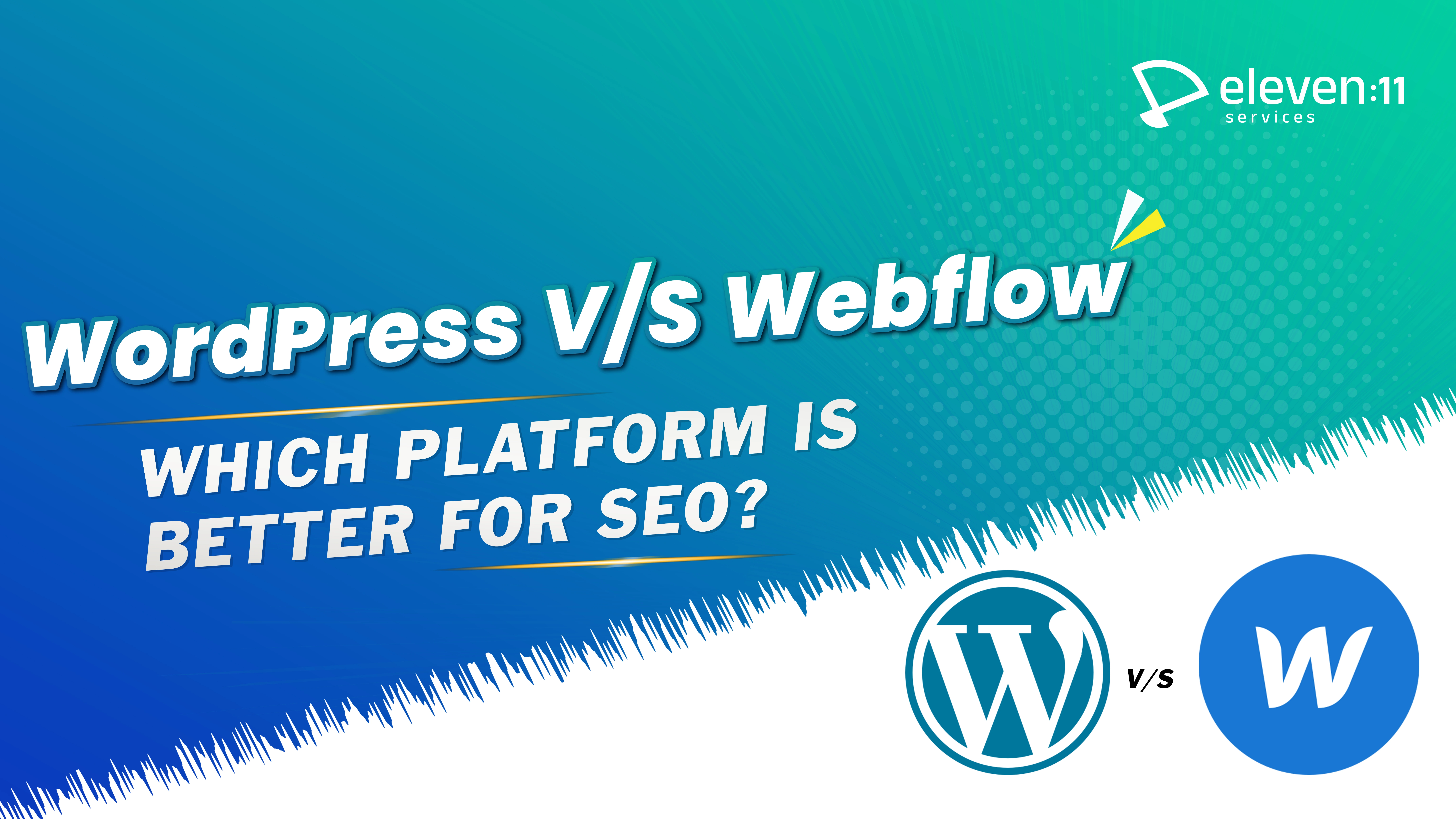WordPress vs. Webflow: Which Platform is Better for SEO?

In the ever-evolving digital landscape, having a strong SEO foundation is crucial for any website’s success. Two of the most popular website-building platforms, WordPress and Webflow, offer distinct SEO capabilities. But which one is the better choice? The answer depends on your needs and preferences, as both platforms excel in their own ways. Let’s break it down.
WordPress for SEO
WordPress is the world’s most widely used content management system (CMS), powering over 40% of websites. It offers incredible flexibility and customization, making it a preferred choice for businesses, bloggers, and digital marketing professionals. When it comes to SEO, WordPress provides a vast array of plugins like Yoast SEO, Rank Math, and All in One SEO Pack to optimize content. These plugins enable users to:
● Customize meta titles and descriptions
● Generate XML sitemaps
● Integrate Open Graph metadata
● Implement schema markup
The advantage of WordPress is its extensive ecosystem and adaptability, allowing users to fine-tune their SEO strategy. However, it also presents challenges, such as plugin conflicts, dependency on third-party updates, and potential performance issues due to bloated code. Managing WordPress SEO effectively often requires technical knowledge and regular maintenance to ensure optimal website speed and security.
Advantages of WordPress for SEO:
● Extensive SEO plugins and tools
● Flexible customization options
● Large community support
● Ideal for content-heavy websites
Disadvantages of WordPress for SEO:
● Plugin conflicts can affect SEO performance
● Can become slow with excessive plugins or bloated themes
● Requires technical knowledge for optimization
Webflow for SEO
Webflow, on the other hand, is a no-code website builder that offers powerful built-in SEO tools without requiring external plugins. It prioritizes clean, semantic HTML and advanced customization, giving users greater control over their SEO strategy. Some of Webflow’s key SEO advantages include:
● Built-in meta tag customization
● Easy control over header tags and alt attributes
● Auto-generated XML sitemaps and canonical tags
● Faster website speed with optimized, minimalistic code
● Direct HTML and CSS editing for technical SEO enhancements
Unlike WordPress, Webflow does not depend on additional plugins, reducing compatibility issues and ensuring a streamlined, high-speed experience for users and search engines alike. Its intuitive interface makes it easy for designers and marketers to manage SEO settings without deep technical expertise.
Advantages of Webflow for SEO:
● No need for third-party SEO plugins
● Clean, minimalistic code for better website performance
● Superior speed and reliability
● Built-in tools for technical SEO like canonical tags and sitemaps
Disadvantages of Webflow for SEO:
● Limited third-party integrations compared to WordPress
● Less flexibility in terms of content-heavy websites
● May require a steeper learning curve for beginners
Final Verdict: Which is Better for SEO?
Both WordPress and Webflow are excellent platforms, but they cater to different needs. If you value extensive customization, plugin-based SEO strategies, and community support, WordPress is a strong choice. However, if you prioritize built-in SEO features, clean code, and superior performance, Webflow stands out as the better option.
Ultimately, the best platform for SEO depends on your specific requirements, technical expertise, and long-term website goals. Whether you choose WordPress or Webflow, both can help you achieve strong search engine rankings when used effectively. For digital marketing strategies, Webflow’s clean code and built-in tools make it a great choice for those focusing on speed and performance, while WordPress remains an excellent choice for flexibility and scalability.
What do you think? Which platform aligns best with your SEO needs? Let us know in the comments!
Recommended Blogs
Explore the basics of Marketing and its applications.



